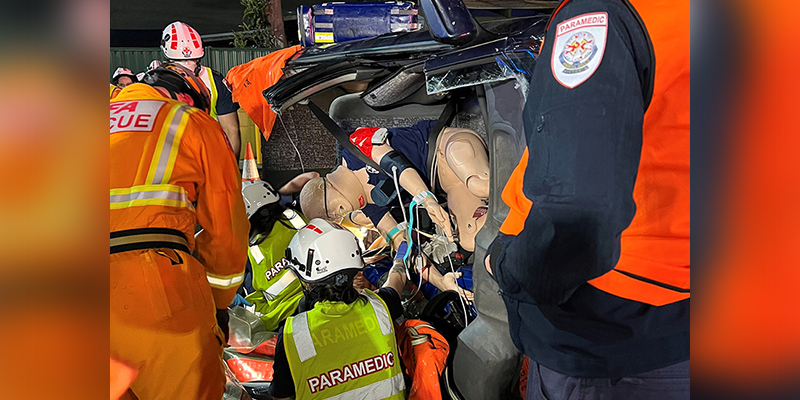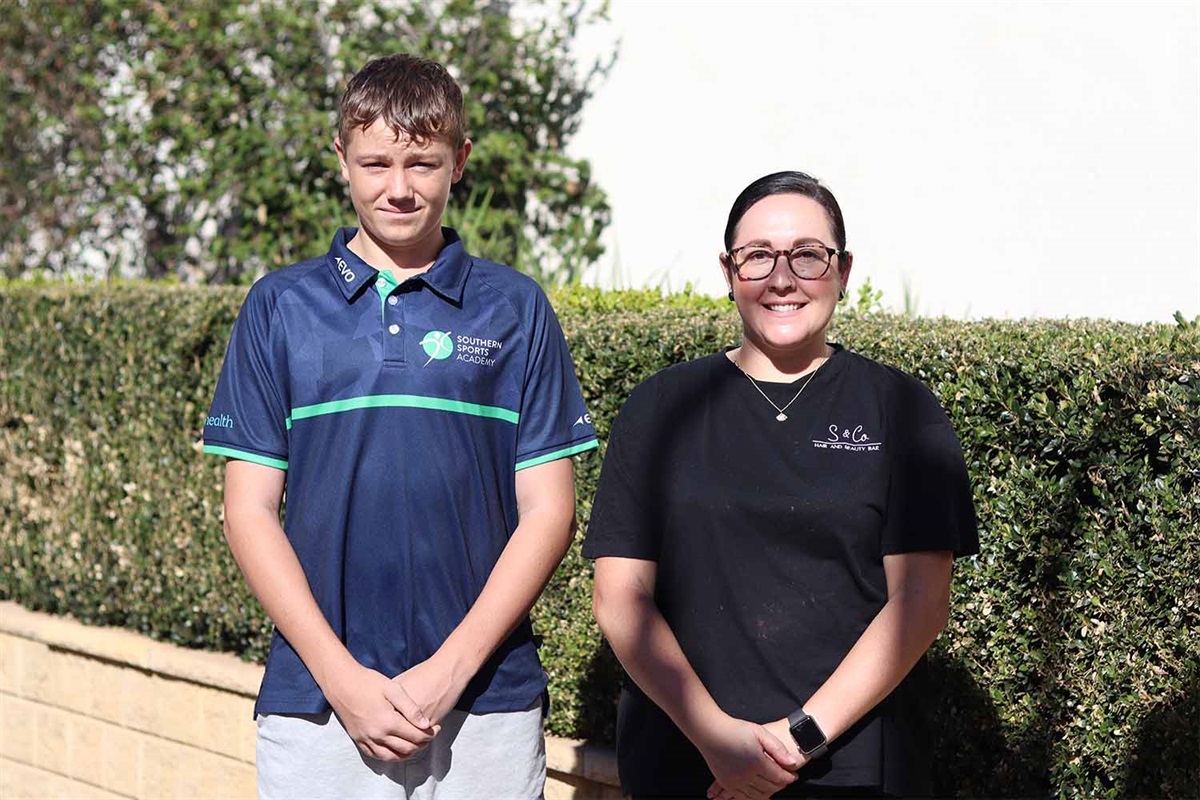By developing a comprehensive succession plan a brigade can avoid future problems.

Mossi-Tambo Fire Brigade Captain Christine Bittner
Brigade experience shows that a successful succession plan needs to take a multi-pronged approach. We interviewed the current captain of Johnsonville Fire Brigade, Chris Seymour, and former captains Bob Bassett and Rod Baylis. We also interviewed Mossi-Tambo brigade Captain Christine Bittner.
The conversations focused on why these small communities in East Gippsland, with tin shed fire stations, are so successful. Thanks to all four for giving us their insights. Based on what they told us we’ve drawn up a list of tips.
Listen to your elders
As a young CFA member, Captain Chris Seymour said he always hung out with the “old guys”. The older members of Johnsonville Fire Brigade were approachable and generous. “Be inquisitive,” Chris said, who wasn’t afraid to ask questions about how they did it back then. These seasoned leaders were and still are his mentors. Chris studied these leaders’ management styles and remarked that, “Everyone has their own style. Some good, some not so good but I learned from them all”.
Mossi-Tambo’s Captain Christine Bittner certainly agrees. “I often turn to my grandfather when I need to talk about issues, management style and more,” she said. “I have many people I go to for help. I listen to everyone’s opinion, gather information and accept support. CFA’s support network is great.”
Never stop learning (or teaching)
As a senior member of Johnsonville brigade, former captain Bob Bassett said he never stops learning. Bob said he still learns from other members every day – even from new recruits who bring new technology skills the brigade needs to embrace. He encourages everyone to take a leadership course. “We see what comes out of that training and go from there.”
Watch and act
“Step back and watch your team – you can see the talent, you can see who can handle things and always work them a job above themselves,” Bob said. “The talent may be good, but do they have what it takes to be a leader? A lot of members have the drive technically but don’t have the soft skills of people management – and they may never have them.”
Delegate, delegate, delegate… and repeat
Chris Seymour said with a grin that he had the “fortunate opportunity of working under a captain who was an outstanding delegator.” He learned through hands-on experience and now he lets his lieutenants grow in the same way. By delegating responsibilities you give your team insight in what being a captain means.
Christine Bittner agreed that delegation was critical. “At first I tried to do everything myself as I was already managing the brigade prior to my appointment,” Christine said. But now she steps back and looks at people. “Who turns up? Who’s keen? Other people have to learn to do the work. I threw a team member into a leader role at an incident and coached her, telling her that she knew what she was doing. Have a go but ask for help if you need it.”
Be dynamic and flexible
Just like the fires they fight, the crew needs to be dynamic and flexible. That includes the captain who needs to run the team efficiently and effectively. “Do what’s best for the team, be empathetic and understand it takes time to learn things,” Chris said. “Put people where they have strengths and do what they enjoy – and then encourage them to do more.”
The election is ‘rigged’
Johnsonville brigade has a strong brigade management team (BMT) and it has been planned that way according to former captain Rod Baylis. “We have a four-to-five-year plan for strategic brigade achievements such as new gear or more members and then we stick to the plan,” Rod said. “We openly discuss and plan elections in advance. We talk about what everyone wants: work-life balance, new challenges, status quo. We plan years ahead.”
Park your ego at the door
“What is key is knowing when it’s time to take a step back,” Rod said. Bob reinforced this by adding that “succession planning is forward planning that involves the people, the vehicles, the group – where are we going? As I get older and slower it’s nice to see people growing and taking more on. Be generous and find deep satisfaction that your team can do it without you.” Chris added, “There should be no ego involved with switching jobs and doing what’s best for the team for work-life balance”.
Demote your captain (but keep them on board)
While a BMT needs to be dynamic and flexible, it also needs to remain stable. When captains step out of the role at Johnsonville brigade, they don’t go quietly into the night – captains are expected to step into the first lieutenant role. By doing this, the BMT maintains stability.
Rod believes that staying in the same role for a long time isn’t helpful. “If we have a four-to-five-year plan, the captain should have been able to accomplish the plan’s goals in that period,” he said. “Then it’s time to give someone else a go. A captain should only be in the role for six years tops.” In Johnsonville’s BMT the third and fourth lieutenants are mentored by the second. The fourth is always an up-and-coming member of the team. This is the way things have been done for a long time.
For every action there is an equal and opposite reaction
Recruiting is to succession as succession is to recruiting. They are two sides of the same coin. One way to keep new sign-ups is to get them to complete their Minimum Skills as soon as possible. Johnsonville brigade does this in spades, as they train their recruits through accredited volunteer trainers on their team. “We run multiple sessions each year for new recruits,” Rod said. “We put recruits through Minimum Skills as fast as possible. Within four to five weeks of signing up we can have someone who is operational – which is very valuable to CFA.”
A recruiting tactic taken by Johnsonville’s current captain is to join other community committees. “The meetings are about our town and I get to hear what’s going on and have a say in what’s going on around our town,” Chris said. “Being on the committee raised the profile of CFA.” He emphasised that CFA is part of the community: “Raise your profile and recruits will drop in.”
Tart up your station
To help raise your brigade’s profile you can increase the visibility, approachability and attractiveness of your station. Do you have noticeable signage outside or on a highway? Does the station stand out or blend into the background? What can you do to make your station more approachable? Chris started by painting the station’s rolling doors red. “People noticed and started expressing interest in coming to the station which resulted in some new recruits.”
Christine stressed, “We need to see our sheds have visible signage, become more modern and attractive; without space and modern comforts it’s almost impossible to get more recruits.”
Perhaps when brigade members aren’t too busy they can think about doing front yard blitzes to improve their station’s visibility and approachability because recruits don’t know what they can’t see.








